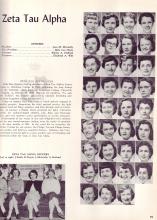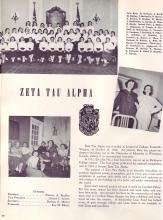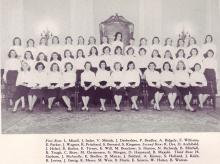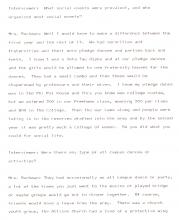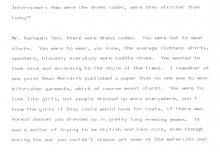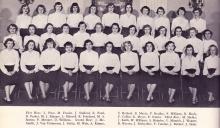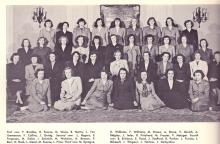Zeta Tau Alpha in 1954
In 1954 members of Zeta Tau Alpha maintained an extensive list of activities. To support their national philanthropy, the fight against cerebral palsey, members sold Kris Kringle seals at Christmas, hosted a beauty clinic, and held bake sales and rummage sales. Zeta Tau Alpha prepared for the newly- scheduled second semester Rush by redecorating rooms where they held events. In addition to the annual Pledge Dance and Tea and Winter Formal, members held card parties and spaghetti dinners. The chapter was led by Jean M. McAnally, president; Bette Lou Hoyle, vice president; Shirley A.

